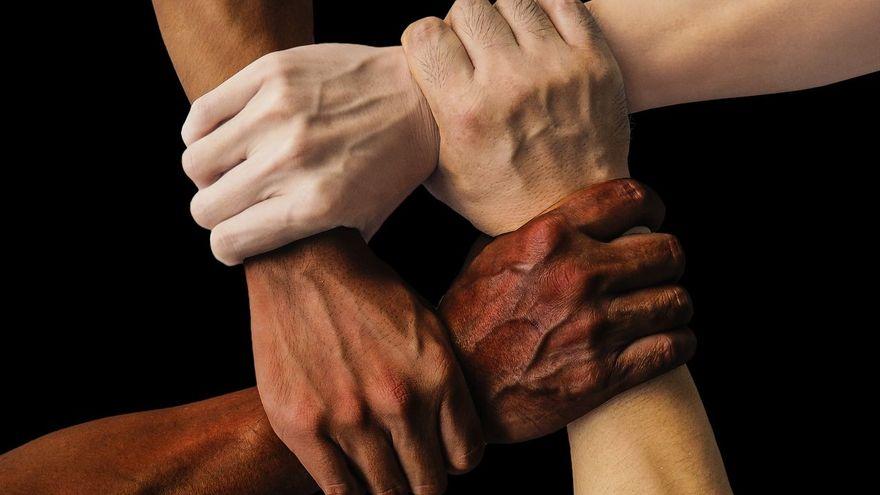06
06/2022
It is often incomprehensible why a well-educated, intelligent and assertive woman outside the couple is unable to end a relationship of abuse.
Fear, love, guilt and shame are emotions that act as a catalyst, in a process of abuse, preventing or delaying the victim from escaping or taking action against violence.
Let us look at the dynamics in which each of them is generated and how they can shed light on situations that we often do not understand, and at worst, make us blame the victim for their situation for our lack of knowledge about the subject.
Fear
Fear creates confusion in the victim, paralysis and helplessness. Fear is an essential emotion for survival. Depending on our state and context, it will motivate us to fight, flee or stay paralyzed. The study consulted (Escudero et al., 2005) points out that what causes the most fear among the victims are the most concrete threats: vital harm and separation from their children. Not forgetting the fear of reprisals by the abuser if he complains and asks for help, and that they will not believe him in the courts. It's not easy to prove abuse, let alone psychological. A former patient was advised by an association of jurists that if she wanted to have evidence of abuse "she has to beat you, but hit you well. I know it's strong to say this, but in practice it is. "
Love
Have you seen "beauty and the Beast"? Jacobson and Gottman point out: "they love their husbands and they go so far as to feel compassion for them and for the difficulties that life poses to them. They hope to help them become normal parents and husbands. These dreams are deeply rooted and they find it very difficult to abandon them. " Our gender socialization sets us on fire with the myth of romantic love that says that "love can do everything".
Good day to you! @Groupon @Groupon_UK @GrouponIreland @GrouponSG @GrouponToronto @GrouponVAN @GrouponHelpUS Have y… https://t.co/KryqIR1SiC
— MacGyver[ŁTC] Fri Mar 30 17:58:51 +0000 2018

The feeding of this illusion that things can change is found in the cycle of violence where phases of tension, explosion and "honeymoon" occur where the abuser shows his best face to recover the victim and pretend that nothing happens here. It must be made clear that violence is present throughout this cycle, even if it does not explicitly manifest itself. Of the three, the most dangerous phase is the "honeymoon" phase, the phase where the flowers given by the abuser to his victim smell manipulation. As the relationship progresses, the latter phase shortens in time and intensity and even disappears. I heard in consultation that he said to my patient, "do you think we save dinner and go on like nothing."
Guilt
The aggressor blames the victim for his emotional actions and reactions. A patient told me how her partner once picked her up and threw her hard into bed at the cry: "look what you make me do!" So far all understandable.
But the funny thing is when she's the one who incriminates herself for the abuse. She sees herself as responsible for it, as a consequence of her way of being or acting.
Self-incrimination covers the need for control, the need to believe in a world just where people get what they deserve. We need to give coherence to the world we live in, even if it does not.
Guilt may have another face, too. When it is he who blames himself, generating a bond of complicity with the woman and keeping her in the relationship by asking her forgiveness and promising that it will not happen again. But it happens and it's getting worse.
Nor can we forget the guilt that comes to the victim through the process of re-victimization, and this is where guilt blends with shame.
Shame.
It is a great paradox, but in this, and in other crimes committed against women because they are women, we, the victims, are the ones we feel ashamed of. How come you haven't noticed before? How could a woman so strong and with such character put up with all that? we had already told you that this man was not good for you! Added to all this is the shame over the questioning of the family ideal that is built face to face by doing everything possible to take care of appearances.
Shame leads to a need to hide abuse. Who wants to wear the stigmatizing label of "battered woman"? "shame feeds on silence and nothing silences as much as shame." Brené Brown
To delve into the topic you can consult:

- 1103
- A catalyst in women's health
Related Articles
How many sit-ups should I do a day to get rid of my belly?
30/01/2022Flattening the abdomen or reducing the fat in this area is a difficult task. But don't despair, we will solve the question: how many sit-ups should I do a day to eliminate the belly. Abdominal fat...
Jalisco The Ministry of Health invites men and women to learn about family planning services
04/02/2022The Jalisco Ministry of Health invites men and women of reproductive age to learn about and use the various services offered by the Family Planning and Contraception Program, which...
Telva International day against gender violence: screens multiply mistreatment against women
01/02/2022SaludUpdated Change of scenery, same victims. On the International Day for the Elimination of Violence against Women, we highlight how aggressions have been copied to the digital sphere, increasing...
Coronavirus Spain today | | Health The Trust Project
18/03/2022The Ministry of Health has reported 3,261 new coronavirus infections and 155 deaths, while the cumulative incidence drops more than six points in 24 hours to 109.3 cases. There is...